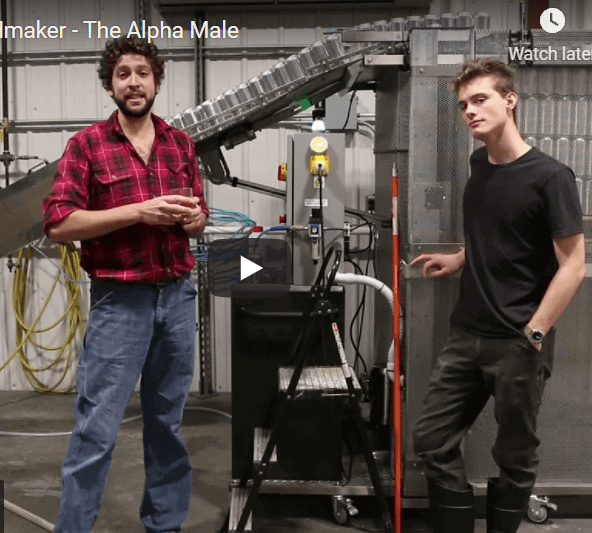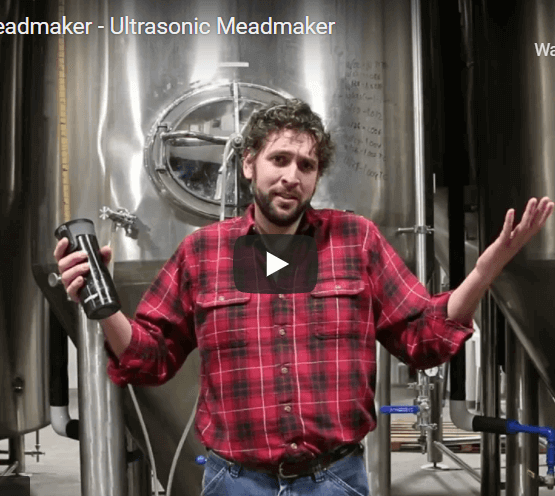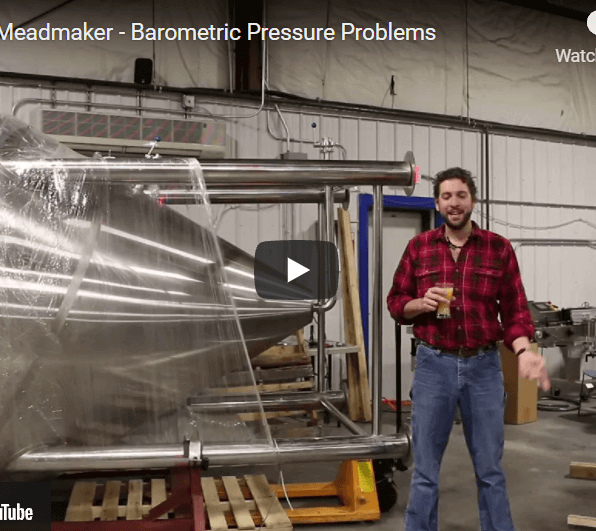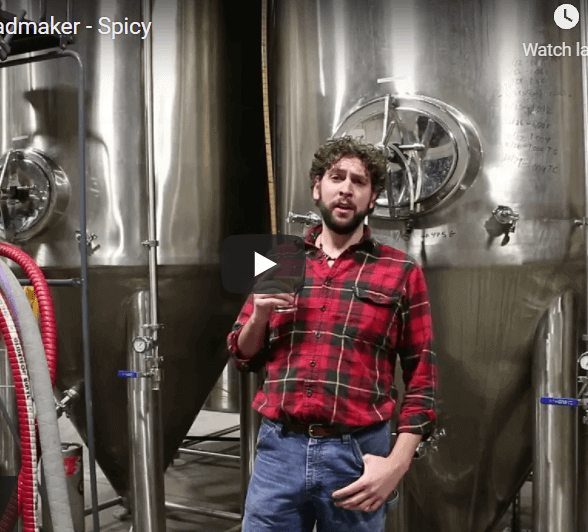This is the one where I actually talk about our canning machine.
Welcome to Ask the Meadmaker, where I, Ricky the Meadmaker, answer your questions about mead making, mead drinking, mead brewing, and really any question you're willing to send me.
This is the second time we've gotten to talk about the canning line today because we forgot to turn the microphone on the first time. Anyway, that's not too much of a delay considering you have been asking about my canning line for like half a year which shows a great enthusiasm for commercial mead making given that most of you will never ever, ever, ever have to deal with operating one of these things.
Anyway, this a little bit about what we do. Our canning line was made by Alpha Brewing Operations, they are fantastic. They're an American company. They have answered all of our questions. They even flew a guy named Cam out here to help us set it all up. If you hear me complaining about anything about the line, it is not their fault, it is just known as teething troubles.
But let's start right here in the heart of the machine. This is what takes the mead from the tank and puts it in the cans. Cans come in, we'll talk about that in a moment, they get filled with CO2, arms come up, they move down the line, they get filled with mead. They come through here for a gravity fed, flip them over, hardly ever jams, can end feeder. They go down, they spin around to seal, and every single one of them gets individually weighed, which is how we know how much mead is in each can.
But let's start talking about the most complicated, silly... we'll let Jake point to things. This is Jake. He works on two parts of the line with me. The reason he works down here is because he is the second tallest person on the staff. This is our de-palletizer, it's what takes the empty cans off of the pallets and pushes them into the machine. It is so tricky and complicated to get cans into a single feeder, down a chute, flipped over, flipped back over, but it all starts with them having to slide very gently over an edge and we use broomsticks to back them into place.
This is the start of our brewing day, and it just gets more goofy and manual from here. The one thing that this machine has that helps us is the built-in vibrator that shakes the cans down into position. If you feel obligated to make a joke about that, please post it somewhere else.
After the cans come out of the machine and get weighed and sealed, they each get rinsed, dried, printed on the bottom and they go through the labeler. This is Jake's domain. He works from here to here doing what, you might ask? Well, the cans have to go from two lines into one. Can you tell them what you do?
Jake
I just give them a little nudge or a poke, pick them up, sometimes put them back down. Pretty complicated stuff.
Ricky
You poke things.
Jake
Quite often.
Ricky
Yeah. So these are the jobs that we're making in the brewing industry for Americans. And now we come to the last part of the machinery. This is the pack tech machine. And this is Nate, the operator of it.
Nate
I operate it.
Ricky
It is a very, very finicky machine because what is the tolerance on it?
Nate
None. There's none.
Ricky
It's got to have some tolerance.
Nate
Well...
Ricky
Less than a millimeter in four different dimensions. And the fourth dimension is time because if they move too fast...
Nate
If they move too fast they get, they shoot out like a shotgun, or they get sucked up back into the machine.
Ricky
Yeah, so we've got it singing. So, it's going great. But one of the reasons we're doing this whole video with the machine off is the cans come out of the machine one every point eight seconds and when things go wrong down here...
Nate
Things go wrong out of here. [NATE GESTURES TO HIS MOUTH]
Ricky
Yeah, so we try to keep this family friendly. And you don't want to hear what Nate has to say when this thing binds up. But uh, that's pretty much the machine right down to the very end where you take them, stack them. And then, so we stack, oh, I don't know, about 450 cases in a day. I think that's our record?
Nate
Yes.
Ricky
So, we'd better get back to it. But thank you for sending all your questions about the machine. If you have more, we're happy to answer them. We'll get to you next time. Cheers.




